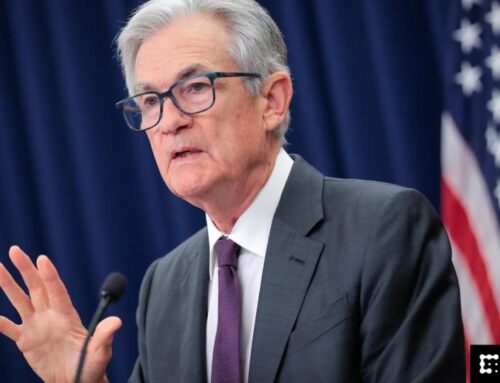Deal to trade Florida forest to golf developer is dead, state says
May 15, 2025
In the height of last summer’s controversy over the DeSantis administration’s proposal to build golf courses, hotels and other amenities on state parks, a separate plan to explore trading 324 acres of state forest land to a luxury golf course developer also emerged, ratcheting up the public outrage.
Floridians were so concerned with the deal, which had received initial approval from the state’s top officials including Gov. Ron DeSantis, that residents turned up at an obscure government meeting in Brooksville to demand answers. Hundreds of residents sent emails to top Florida Department of Environmental Protection officials demanding they abandon the land swap, which was first revealed by the Tampa Bay Times.
About a year later, the Canadian golf developer that first sought the deal has decided to walk away, according to the state.
Alexandra Kuchta, spokesperson for the state environmental agency, confirmed that the company, Cabot Citrus Farms, “has informed the department that they are no longer pursuing the exchange.” When asked if there was any chance of an alternative swap of different parcels, she ruled that out.
“The department is not pursuing a land exchange with Cabot Citrus Farms,” Kuchta wrote in an email.
Related: Florida forestry official questioned DeSantis-backed swap of state forest to golf company
Cabot Citrus Farms already runs a prestigious golf course adjacent to the Withlacoochee State Forest. It had approached the state asking for the land swap so it could expand the operation, where it has also built multimillion-dollar homes.
In exchange, Cabot Citrus would buy 861 acres of timberland in Cedar Key to trade to the state. Top staff within the governor’s office helped get it placed on a June meeting agenda at the last minute, records show. The Florida Cabinet then gave initial approval to the idea after less than 30 seconds of discussion.
Still, the deal required a few steps to come to fruition, including a vote from a committee within the state environmental agency called the Acquisition and Restoration Council.
But in the year since, environmentalists and some former state officials have decried what they said would be an unprecedented giveaway of critical, preserved habitat at the request of a developer. In addition, the timberland the state would acquire, where trees grow in parallel rows and some sections are clear-cut, was of a lesser conservation value.
We’ll deliver the latest news and information you need to know every morning.
Want more of our free, weekly newsletters in your inbox? Let’s get started.
The swap never came before the council for discussion.
It’s unclear when or why Cabot Citrus abandoned the deal. Lynetta Griner, a council member, said in an email she had not heard anything about the status of the proposed swap. Kuchta has declined to provide additional information. The company also did not respond to emails, nor did the Florida Department of Agriculture and Consumer Services, which oversees state forests.
But when told the news by Times reporters, advocates for Florida forests celebrated.
“This victory for public lands shows that committed investigative journalists and public lands advocates can ensure Florida’s public lands stay in public hands,” said Joe Murphy, wildlife policy specialist for the National Wildlife Federation, who lives in Hernando County. “A conservation area was saved. That doesn’t happen every day.”
The state forest land harbors fragile sandhill habitat and acts as a connector to other preserved areas, creating a corridor for wildlife. When Times reporters hiked the property in September, plant and animal experts pointed out yellow button and blazing star flowers, silkgrass, jays and gopher tortoise burrows, all signs of a habitat bustling with native Florida species.
The parcel’s biodiversity was also recognized in formal surveys. Chase Pirtle, the habitat manager at the Alachua County-based nonprofit Ashton Biological Preserve, hiked the property in November to evaluate the land.
In his report, Pirtle said he found a healthy population of gopher tortoises, tallying more than 100 burrows, of which more than half showed signs of active use. The threatened tortoises are considered a keystone species because their burrows can provide shelter for more than 350 other animals.
“With the tortoise population observed through the survey, it not only proves the parcel has much-needed ecological value, it also shows that the parcel has the ability to further promote wildlife and habitat restoration,” Pirtle wrote.
Eugene Kelly, the president of the Florida Native Plant Society, said the forest land is a critical bridge for wildlife that connects coastal preserves to the inland stretch of the Withlacoochee State Forest.
Plus, the land is just a few miles from several major freshwater springs already struggling to fend off nutrient pollution from development. Another nearby golf course, dosed heavily with fertilizer, would have likely made water quality restoration efforts more difficult, Kelly said.
He said the fact that Cabot is no longer pursuing the land swap is “great news,” made even more notable by its timing.
Last week, DeSantis said he would sign a bill into law to prohibit building golf courses, hotels, pickleball courts and similar amenities on state parks. The Legislature passed the bill unanimously, but his approval was uncertain because the bill challenged an idea his administration had previously promoted.
Related: So what happened with DeSantis and the Florida parks plan? Ask the reporters.
“It’s the perfect bookend to the Legislature passing the State Park Preservation Act,” Kelly said. “The people asserted they support land conservation, and rejected the notion that golf courses should be built on our protected natural areas.”
But just as one unusual land swap is shelved, another has taken its place.
Late Wednesday night, the Florida Department of Environmental Protection released an agenda for a previously unscheduled meeting of the land acquisition council for next week.
The state proposes swapping 600 acres of the Guana River Wildlife Management Area in St. Johns County for a patchwork of parcels around the state. A private entity, The Upland LLC, has asked the state for the land, and wording in the proposal hints the land could be developed.
In the section outlining possible impacts to the Guana River’s conservation land, for instance, the proposal notes “a majority of the wetland habitats will be avoided.” Without elaboration from the state, some critics of the swap have taken the word “avoided” to mean there are development plans under consideration.
Still on edge from how the Cabot land swap was introduced, environmental advocacy groups were quick to point out what they consider to be red flags with the latest swap proposal, including the state rushing to call a new meeting and a lack of transparency for how the land might be used if it’s traded away.
“The fundamental issue remains,” the Florida Audubon Society wrote in an alert to its advocates late Wednesday night. “Florida’s conservation lands are not held in trust for the public simply until a developer wants them.”
Search
RECENT PRESS RELEASES
Related Post




